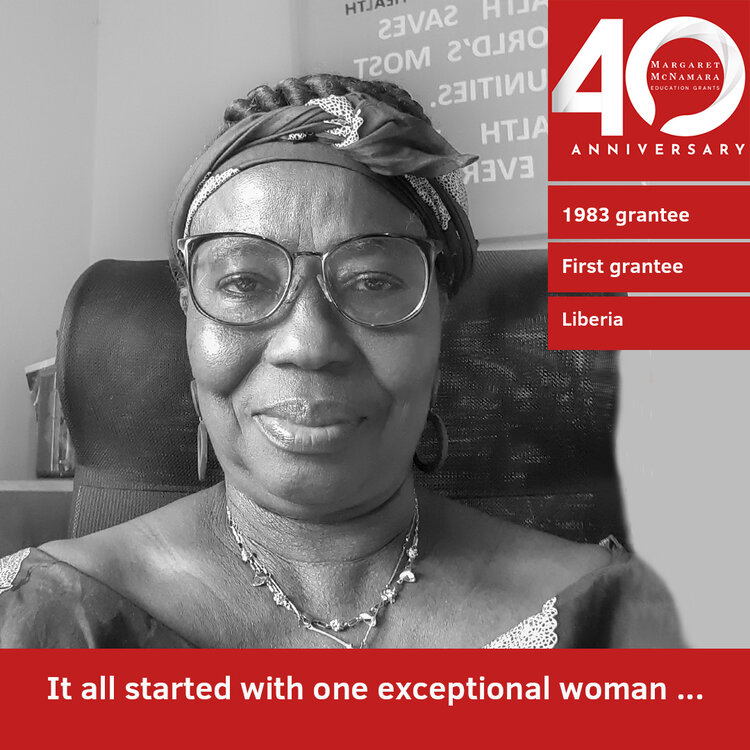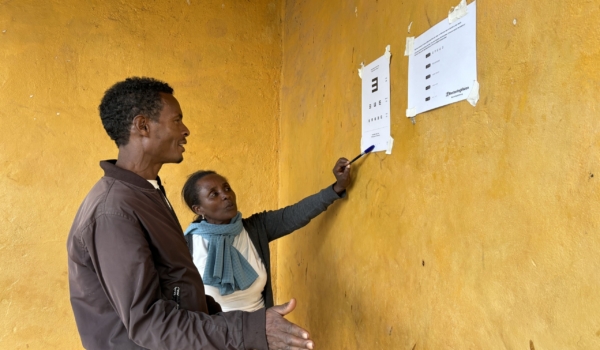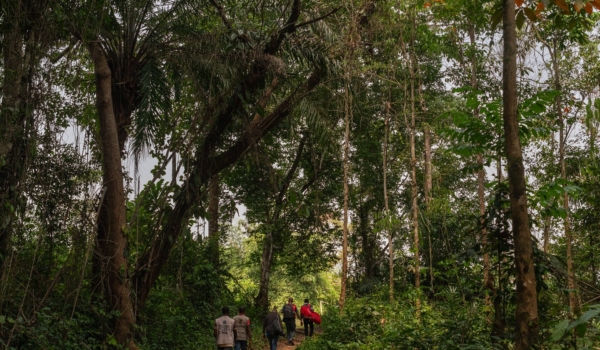This piece originally appeared on the Margaret McNamera Education Grants website.

In 1983, Liberian Marion Subah became the first recipient of a scholarship through the Margaret McNamera Educational Grants program. Marion obtained a Master’s degree in nursing as a Pediatric Nurse Practitioner at the Catholic University in Washington DC and previously earned a degree in nursing at Cuttington University College in Liberia.
For over 40 years, as a public health specialist, Marion Subah has dedicated her work to bettering the lives of women and children in Liberia where she has supervised and strengthened health care delivery and education systems. Vital to her is expanding human resources to promote wellness and eliminate preventable diseases and maternal and child deaths.
When the Ebola virus struck Liberia, Marion led her organization, Jhpiego, as a key partner in the Infection Prevention and Control (IPC) Task Force responsible for the country’s program to train, mentor, and supervise health care professionals in infection prevention and control protocols. Jhpiego supported 290 facilities in 7 of the 15 counties of Liberia. The Ministry of Health, World Health Organization and others adopted the motto of the task force, “Keep safe, Keep serving” (KSKS) as the primary intervention to support health care professionals in responding to the Ebola outbreak throughout the country. The task force was later made more comprehensive and named as the Safe and Quality Healthcare Service (SQS).
Marion first studied nursing in Liberia at Cuttington University College. In 1982, she furthered her studies at Catholic University in Washington, DC, obtaining a Master’s degree in nursing as a Pediatric Nurse Practitioner. Her commitment and dedication to the welfare of women and children, so impressed MMEG (at the time called the Margaret McNamara Memorial Fund) that she became the scholarship fund’s first grantee. Her goal was to return to Liberia to train nurses especially in rural areas in child care and nutrition, but she has attained much more.
After returning to Liberia, Marion taught nursing and midwifery, then entered the Ministry of Health and Social Welfare, where she directed the Maternal Child Health and Family Planning program in the Family Health Division. She subsequently rose to become the first Director of the Information, Education and Communications Division, leading the country’s health education and continuing clinical education program. In 1989 she moved to the Christian Health Association of Liberia as Primary Health Care Coordinator and later became program manager for the Community Health and Development program at its eight hospitals and more than fifty clinics throughout the country.
Marion’s life took a precarious turn when the Liberian civil war broke out in late 1989. Her family had to separate; she remained in Liberia with some of her children while her husband and their other children sheltered out of the country. She opened her home to neighbors and refugees and then she and some eighty other individuals walked to Kakata, a safer community forty-five miles away . There at Phebe Hospital, in Bong County she worked in the maternity and children’s wards and peace building became part of her life’s mission.
Throughout the war, Marion continued her work to in and out of the country to improve women’s and children’s health. With her additional training and experience, Marion also worked in ongoing reconciliation, peace building and conflict transformation processes, becoming a co-founder of the West African Network for Peace Building (WANEP) and one of the three members of its first management team.
When the war in Liberia ended, she returned to Monrovia, to work for Jhpeigo, an international, non-profit organization affiliated with The Johns Hopkins University and dedicated to improving the health of women and families. Marion provided management and technical oversight for Jhpeigo’s portfolio in Liberia for 10 years in partnership with the Ministry of Health to improve reproductive maternal newborn and child health (RMNCH); the focus was on increasing the number of qualified human resources and of interventions for the effective delivery of quality RMNCH services.
Marion has implemented and managed programs for several national and international organizations, including the Christian Health Association of Liberia, World Vision, Africare, and Medical Teams International. She is a fellow of the West Africa College of Nursing, a Certified Registered Nurse Midwife, a Certified Maternal Child Health Registered Nurse, a Pediatric Nurse Practitioner, and a member of the Education Committee of the International Confederation of Midwives.
Marion Subah now works for Last Mile Health, an organization with a mission to save lives in the most remote communities. As Country Director in Liberia, she manages the organization’s partnership with the Ministry of Health to scale up and sustain the National Community Health Assistant Program, leading the organization’s technical assistance to government.
Marion set the standard for a model MMEG recipient and an admirable first-ever grantee. The health professionals she has trained, mentored, and supervised have enabled thousands of Liberian women and children to receive quality care and health information in maternal, newborn and childcare, nutrition, family planning, and preventive health. She has significantly improved the delivery of healthcare, been a model educator, an efficient manager, and an able leader and, most importantly, has saved the lives of innumerable Liberian mothers and children over her long career.
Margaret McNamara Education Grants (formerly known as MMMF) is a nonprofit, public charity founded in 1981, which awards education grants to exceptional women from developing countries, who are at least 25 years old, and enrolled at universities in the US, Canada and select universities in South Africa and Latin America.
Photo Credit: Kate Holt for Jhpiego/MCSP




